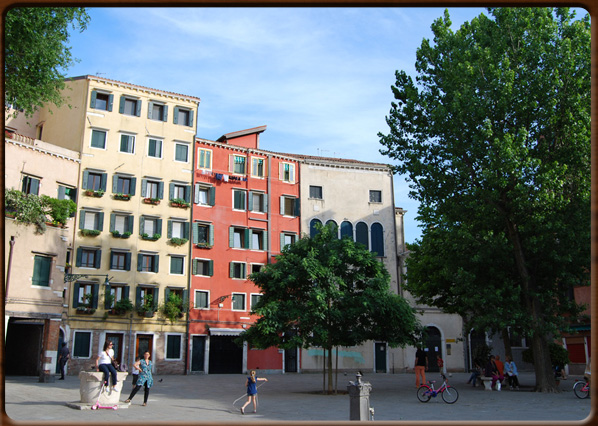
Campo del Ghetto Nuovo.

No video
After the destruction of the Temple of Jerusalem by the Romans in 70 ad, the diaspora of the Jews who had lived in the Roman Empire and other Mediterranean cities since ancient times intensified. They started to emigrate towards Germany in the 10th Century, engaged in commerce and finance. Known as the “Ashkenazi", they mainly spoke Yiddish.
Driven by the plague of 1348 (for which they were often held responsible), many Ashkenazi Jews headed southward, forming several settlements in the Veneto region, where they were granted permission to conduct the business of money-lending, something that the Christian Church prohibited its faithful from engaging in.
Since the start of the Diaspora and as a result of Arab expansion, many Jews had settled in Spain, thus giving rise to the Sephardic community. In the years following the "Reconquista" (i.e. the final expulsion of Muslims from Spain) in 1492, the Jews were expelled from the Iberian peninsula and dispersed throughout Europe.
The Venetian Republic received them at first with a certain amount of distrust, but later changed its mind and was happy to welcome them thanks to their remarkable abilities in commercial, financial and diplomatic matters. The Sephardic Jews thus joined the German Ashkenazi community that had been in Venice for more than a century.
In addition to the Ashkenazi and Sephardic communities, there was also an Italian community of Jews in Venice at the end of the 13th Century, who had come from southern parts of the country and, especially, from Rome. Its members, mostly money-lenders, merged with the Ashkenazi Jews and became part of the Scuola Tedesca community.A fourth nation, or community, whose identity remained intact, was that of the Scuola Levantina: Levantine Jews coming from the East and either living in Venice or travelling to Venice to carry out their business.
1300 - 1400 - - rev. 0.1.7